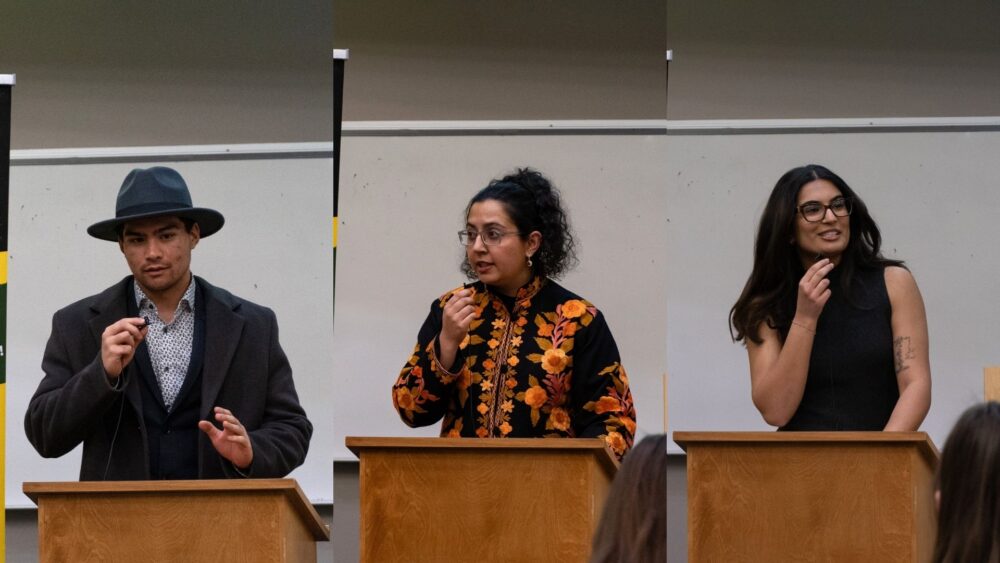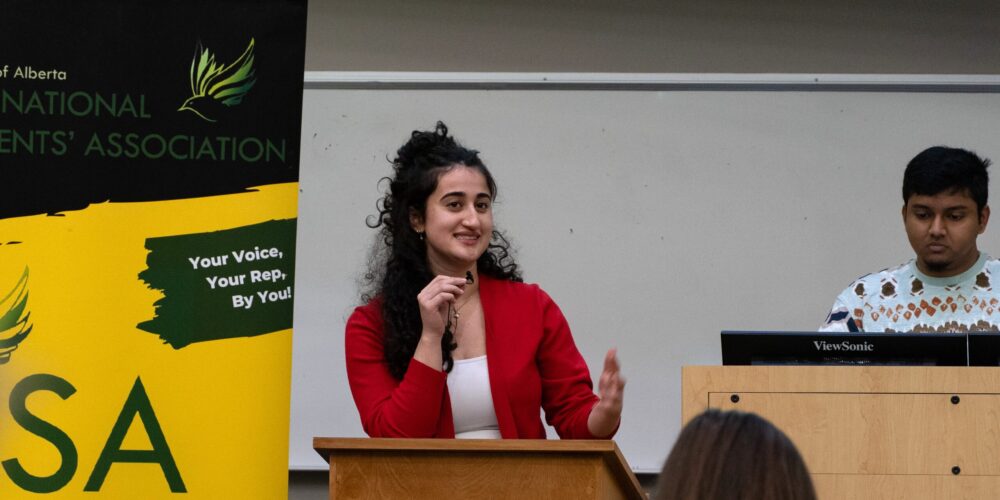 Alexander Cook
Alexander CookThe phrase “get out of your comfort zone” is certainly overused. It’s tossed around like a stick thrown by a dog owner in a vast field, in hopes that their dog will go fetch it. It’s a phrase that, while easy to say, ignores the possibility of barriers to getting out of that zone. It’s easy to throw the stick, but the dog must put in way more effort to fetch it.
In the context of international students’ experience, and the formation of social bubbles in certain international student communities, we shouldn’t tell those students to “get out of their comfort zone.” We should instead examine the difficulties of establishing cross-cultural relationships, and the imposter syndrome that often tags along with it.
As an international student, I took it upon myself to venture forth into a foreign culture, but I often found myself wondering what it would be like to be back home. I missed the food, my family, my friends, the atmosphere. Homesickness can make it hard to adjust to a foreign culture.
Naturally, in a new country, you may meet people like you, those who are going through the same thing: people who can relate. You hang out together, you may speak the same language, you may be of the same ethnicity. Before you know it, your closest friends are people you might have met back home, away from home. Having these connections helps you find comfort in the fact that you’re not alone in your circumstances.
While making these kinds of connections is great, especially for your mental health, it’s the path of least resistance, one that may not be the best path for growth. I’ve come across instances during my degree where I would enter a room of people and think, “these people are nothing like me, how can I possibly be in the same room as them? I don’t belong here.”
Eventually, I learnt that I had to learn to belong by teaching myself that I do belong. In the process, I uncovered more than just the fact that I did belong. In fact, by the end, I found it hilarious that I even had to try. In my experience, people are more accepting and less judgemental than you may believe. It’s worth it to give people the benefit of doubt.
Let’s shift gears a bit and address university culture. University is an interesting place because it’s a space where numerous cultures intersect. There’s so much to learn from this; it serves as a gateway for all students, domestic or international, to understand perspectives that they’re unfamiliar with. It’s possible some may find learning about new cultures disinteresting, that some feel there’s no reason to branch out and mingle with those they’ve probably labelled under stereotypes.
The path of least resistance is both convincing and seductive. But what would happen if you were to say no to it? Would you like to be open to connections and see where they take you? What lies in a world beyond what you know? You can find out; it only takes an introduction or two.
Campus life is full of opportunities. Living in I-House, attending International Student Services events, and joining various student club events are just a few of them. It’s daunting to muster up the courage to head to events when communication and relatability feel like impenetrable barriers. But you may be shocked to find that the girl from Peru plays the same video games as you do, or that the guy from Bangladesh shares your taste in music.
This isn’t to say that the other end has it easy. Students already immersed in the culture should put it upon themselves to be aware of communicative and social obstacles, helping the other party navigate their way around them. I have often seen international students ostracized from study groups and community events, not necessarily to the fault of the people around them. For example, if a student who doesn’t fluently speak English is attending a networking event, it’s bound to be intimidating and daunting for them! Wouldn’t it be great to give those students some guidance and attempt to incorporate them into the event as best we can? That exchange could turn into a wonderful learning experience.
The ability to immerse oneself in another culture and learn from it is extraordinarily rewarding. It’s an ability that anyone can learn, and only demands a bit of cognizance. So, wake up, get up, get out there.




